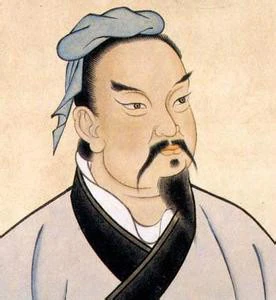
The Art of War, written by Sun Tzu more than 2,500 years ago, is a military strategy manual that has endured the test of time. Despite being focused on warfare, many of the principles outlined in this ancient text can be applied to our everyday lives. Here are 10 powerful quotes from Sun Tzu’s Art of War and how we can follow them in our everyday lives.
10 Best Art of War Quotes
- “All warfare is based on deception.”
While deception may not be the most ethical strategy, this quote reminds us that we must be strategic in our actions. In everyday life, this could mean being strategic in how we communicate with others or in how we present ourselves in various situations.
- “The supreme art of war is to subdue the enemy without fighting.”
This quote emphasizes the importance of diplomacy and negotiation. In everyday life, this means being able to find common ground with others and resolving conflicts peacefully.
- “If you know the enemy and know yourself, you need not fear the result of a hundred battles.”
This quote highlights the importance of self-awareness and knowledge of one’s surroundings. In everyday life, this means being aware of our strengths and weaknesses, as well as the people and situations around us.
- “Victorious warriors win first and then go to war, while defeated warriors go to war first and then seek to win.”
This quote reminds us that preparation is key. In everyday life, this means being prepared for various scenarios and having a plan in place before taking action.
- “If you wait by the river long enough, the bodies of your enemies will float by.”
This quote emphasizes the importance of patience and perseverance. In everyday life, this means being patient in achieving our goals and not giving up too quickly.
- “The wise warrior avoids the battle.”
This quote reminds us to pick our battles wisely. In everyday life, this means choosing our battles and not wasting our energy on things that are not worth fighting for.
- “When you surround an army, leave an outlet free. Do not press a desperate foe too hard.”
This quote reminds me of the importance of compassion and empathy, which means treating others with kindness and understanding, even in difficult situations. Even in the midst of conflict, it is important to treat our opponents with kindness and understanding.
- “Opportunities multiply as they are seized.”
This quote highlights the importance of taking action and seizing opportunities when they arise. In everyday life, this means being proactive and taking advantage of opportunities as they come.
- “Let your plans be dark and impenetrable as night, and when you move, fall like a thunderbolt.”
This quote emphasizes the importance of secrecy and surprise. In everyday life, this means keeping our plans to ourselves and being strategic in how we execute them.
- “So in war, the way is to avoid what is strong, and strike at what is weak.”
To me this is one of the best Art of War quotes. We can apply this concept to our everyday lives. WE need to recognize our own strengths and weaknesses and those of the people we interact with. By doing so, we can focus our efforts on areas where we are strongest. It will also help us avoid situations where we may be at a disadvantage. For example, if we are negotiating a business deal, we should focus on our strengths and what we can bring to the table rather than trying to compete in areas where our opponent is stronger.
Similarly, in relationships, it is important to recognize the strengths and weaknesses of our partners and friends. By doing so, we can offer support in areas where they need it while avoiding conflicts that may arise from differences in strengths and weaknesses. This way, we can build stronger and more harmonious relationships.
Summary
The Art of War may have been written for military strategy, but its principles can be applied to our everyday lives. We can become more strategic, patient, and successful in achieving our goals by following them . Here is a quick recap:
- All warfare is based on deception
- The supreme art of war is to subdue the enemy without fighting.
- If you know the enemy and know yourself, you need not fear the result of a hundred battles.
- Victorious warriors win first and then go to war, while defeated warriors go to war first and then seek to win.
- If you wait by the river long enough, the bodies of your enemies will float by.
- The wise warrior avoids the battle.
- Know thy self, know thy enemy. A thousand battles, a thousand victories.
- Opportunities multiply as they are seized.
- Let your plans be dark and impenetrable as night, and when you move, fall like a thunderbolt.
- The greatest victory is that which requires no battle.







